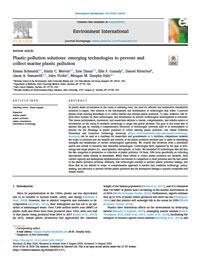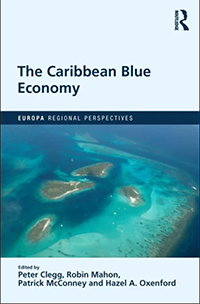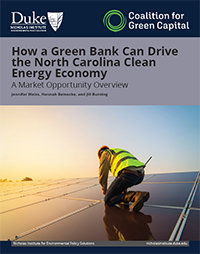Publications
South Carolina Energy Efficiency Roadmap
This report makes recommendations for increased and effective energy efficiency deployment in South Carolina.
Estimating Residential Building Energy Consumption Using Overhead Imagery
Residential buildings account for a large proportion of global energy consumption in both low- and high- income countries. Efficient planning to meet building energy needs while increasing operational, economic, and environmental efficiency requires accurate, high spatial resolution information on energy consumption. Such information is difficult to acquire and most models for estimating residential building energy consumption require detailed knowledge of individual homes and communities which are unlikely to be available at a large scale.
Lessons for Modernizing Energy Access Finance, Part 2 – Balancing Competition and Subsidy: Assessing Mini-Grid Incentive Programs in Sub-Saharan Africa
This policy brief summarizes a review of 20 mini-grid incentive programs in sub-Saharan Africa, 17 of which are still being implemented. The programs analyzed primarily used one of two mechanisms to stimulate investment: auction programs and results-based financing (RBF) programs.
Business Model Innovations for Utility and Mini-Grid Integration: Insights from the Utilities 2.0 Initiative in Uganda
The historical context from which many African utilities have emerged has left a challenging legacy regarding the provision of energy service delivery to all. As rural electrification receives growing attention, a wave of decentralised renewable energy (DRE) technologies and business models are changing the energy service delivery landscape.
This Energy Insight focuses specifically on the opportunities for distribution utilities and mini-grid developers to collaborate.
Growing Options for Shrinking Cities
When people and industries leave a community, water utilities face the potential loss of revenue from departing customers and the cost and issues associated with maintaining excess system capacity.
Water systems seek to (1) ensure affordability, (2) maintain high service and quality, and (3) sustain fiscal viability; this creates a trilemma for shrinking cities that can ensure only two of the three.
A Practice-Oriented Approach to Foster Private Landowner Participation in Ecosystem Service Conservation and Restoration at a Landscape Scale
Large landscape conservation planning often requires managers to coordinate with private landowners, especially in regions like the southern and western U.S. where private landownership dominates. It is often difficult to design conservation programs that incorporate varying landowner perceptions, values, and ownership objectives. Simple and transferable methods are needed to inform the design of landscape-scale conservation and restoration programs, and we propose that this can be done by targeting ecosystem services (ES) of interest to private landowners.
Analysis of Environmental and Economic Impacts of Hydropower Imports for New York City through 2050
This study identifies conceivable scenarios for responding to the closure of IPEC and uses publicly available data to quantify the plausible ranges of direct and indirect economic and environmental costs and benefits of each scenario over the period 2021–2050.
Plastic Pollution Solutions: Emerging Technologies to Prevent and Collect Marine Plastic Pollution
As plastic waste accumulates in the ocean at alarming rates, the need for efficient and sustainable remediation solutions is urgent. One solution is the development and mobilization of technologies that either 1) prevent plastics from entering waterways or 2) collect marine and riverine plastic pollution. To date, however, few reports have focused on these technologies, and information on various technological developments is scattered.
The Blue Economy as a Global Initiative
The Blue Economy concept has been promoted as a response to a vision of rapidly increasing human activity in the ocean, labelled an “economic frontier” for an expanding population searching for new sources of growth, equipped with emerging technologies that make the global ocean and its resources more accessible. To some extent, the concept has evolved from the earlier idea of an “ocean economy,” which aimed to link a diverse set of economic activities and industries under one label, because they all in some way shared the ocean as a physical context. For this reason, the concept of the ocean economy first needs some description, and to be distinguished from the concept of a Blue Economy.
How a Green Bank Can Drive the North Carolina Clean Energy Economy: A Market Opportunity Overview
This report provides an analysis of clean energy finance opportunities that will accelerate the transition to a clean energy economy in North Carolina. Green Banks have been proven as an effective engine for job creation by leveraging public resources to catalyze private investment, which is particularly relevant in this time of high unemployment.










